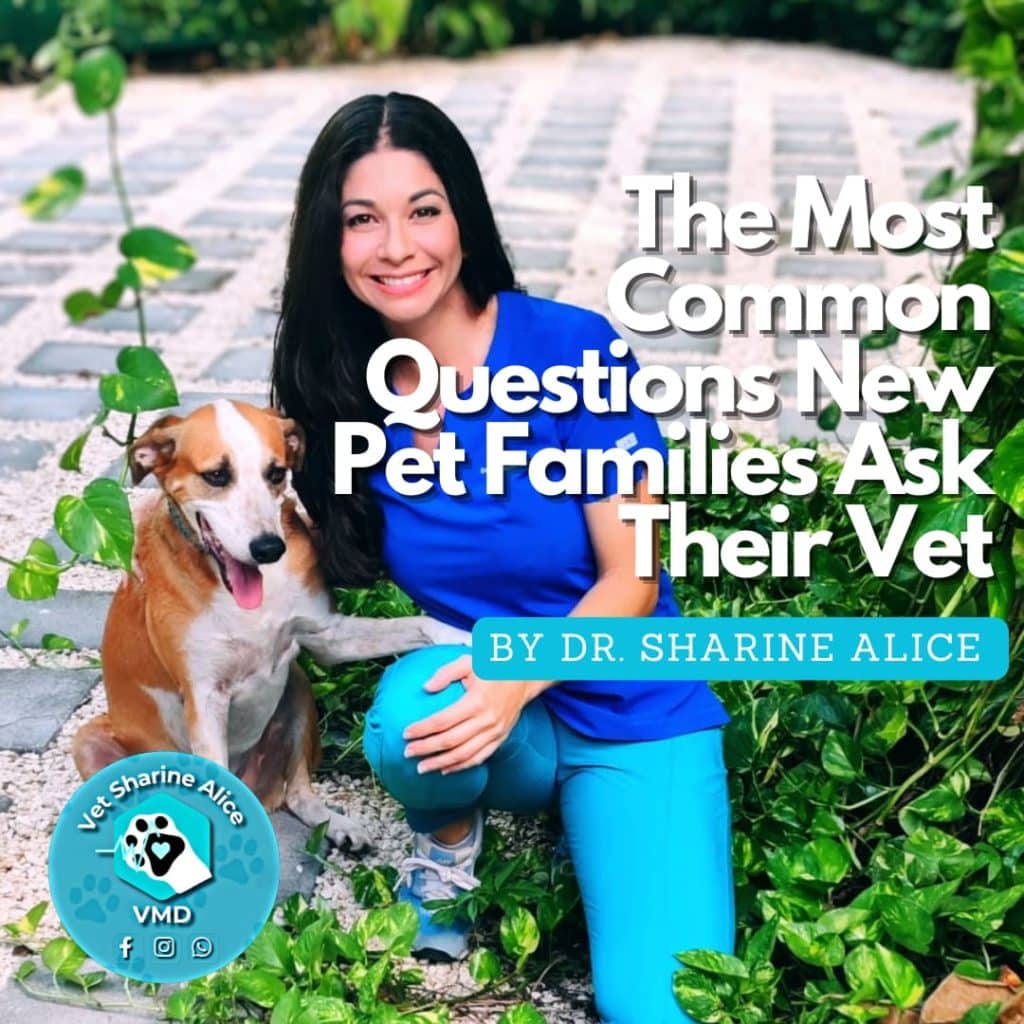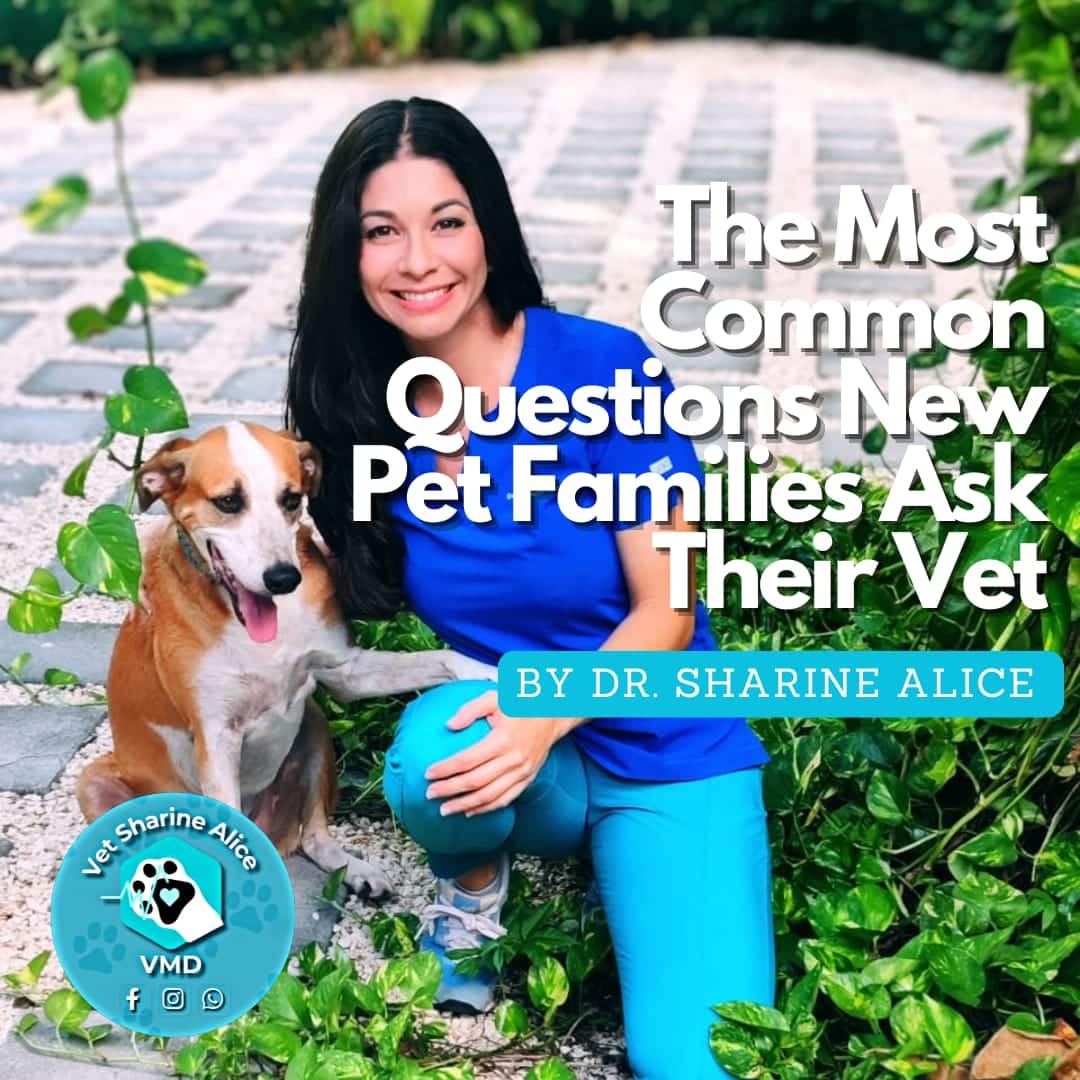By: Dr. Sharine Alice, VMD (CMVCR1117)
Bringing a new dog or cat into your life is one of the most exciting and rewarding experiences. Along with the joy of adoption comes a wave of questions—especially for first-time pet families. Veterinarians often see similar concerns, and addressing them early helps ensure a healthy, happy life for your new furry family member.
1. What should I feed my pet?
Nutrition is one of the first concerns for new owners. Choosing the right food depends on age, breed, size, and health status. Puppies and kittens require diets rich in protein and calories, while adult pets may need a balanced formula to maintain weight and energy. Always ask your vet for specific recommendations—avoiding table scraps and unsafe foods is key.
2. When should vaccinations start?
Vaccines protect against serious diseases such as rabies, parvovirus, and feline panleukopenia. Puppies and kittens typically start their vaccination series at six to eight weeks of age, with boosters scheduled regularly during their first year. Staying up to date with vaccines not only protects your pet but also helps safeguard your community.
3. Do I need to spay or neuter my pet?
This is a very common question among adopters. Spaying or neutering provides important health benefits, reduces behavioral issues, and helps control the pet population. Your vet can guide you on the safest timing depending on your pet’s age and breed.
4. How do I keep my pet parasite-free?
Fleas, ticks, and intestinal worms are not just uncomfortable—they can transmit diseases to both pets and humans. Preventive treatments (spot-ons, tablets, or collars) are essential. Many new owners underestimate how quickly parasites can spread, so consistent protection is crucial.
5. How much exercise and playtime do they need?
New pet parents are often surprised by the energy levels of their companions. Dogs need daily walks, mental stimulation, and play, while cats thrive with interactive toys and climbing opportunities. Regular exercise strengthens your bond and keeps your pet physically and mentally healthy.
Important:
Adopting a pet is a lifelong commitment filled with love, joy, and responsibility. Asking questions and staying informed is the best way to give your new family member the healthy and happy life they deserve. Your veterinarian is your best partner in this journey—never hesitate to reach out with concerns, no matter how small they may seem.
Dr. Sharine Alice, VMD (CMVCR1117)
Contact: (506) 8307-8400
Playa Hermosa, Guanacaste, Costa Rica.








